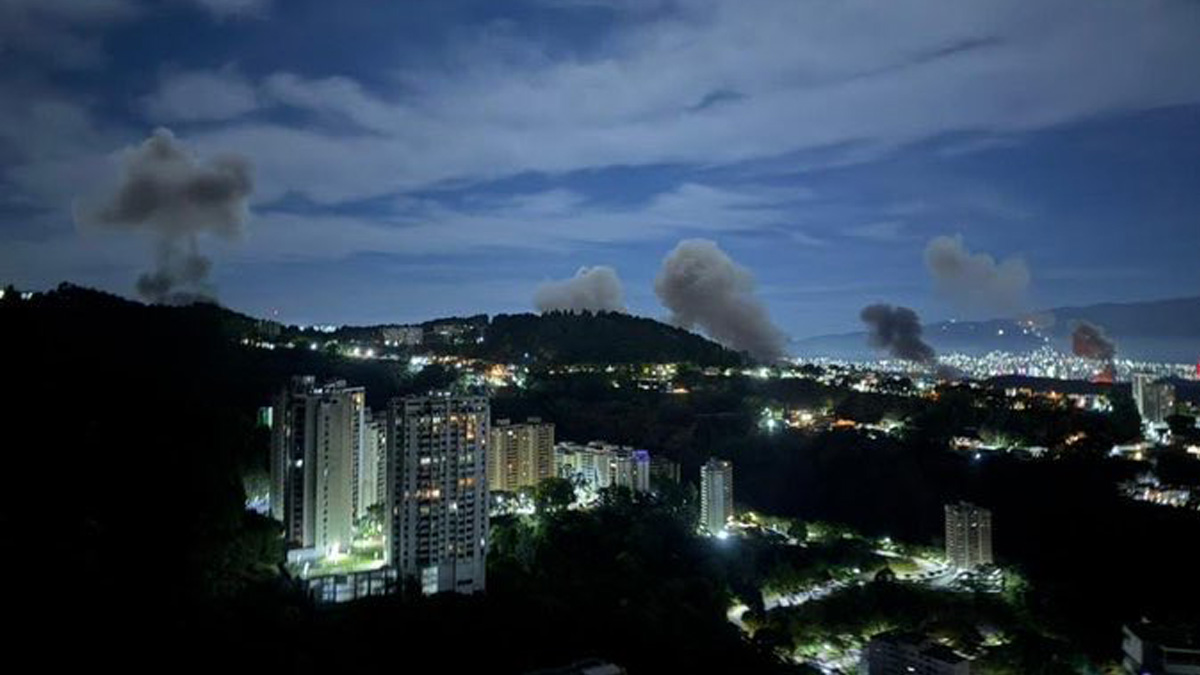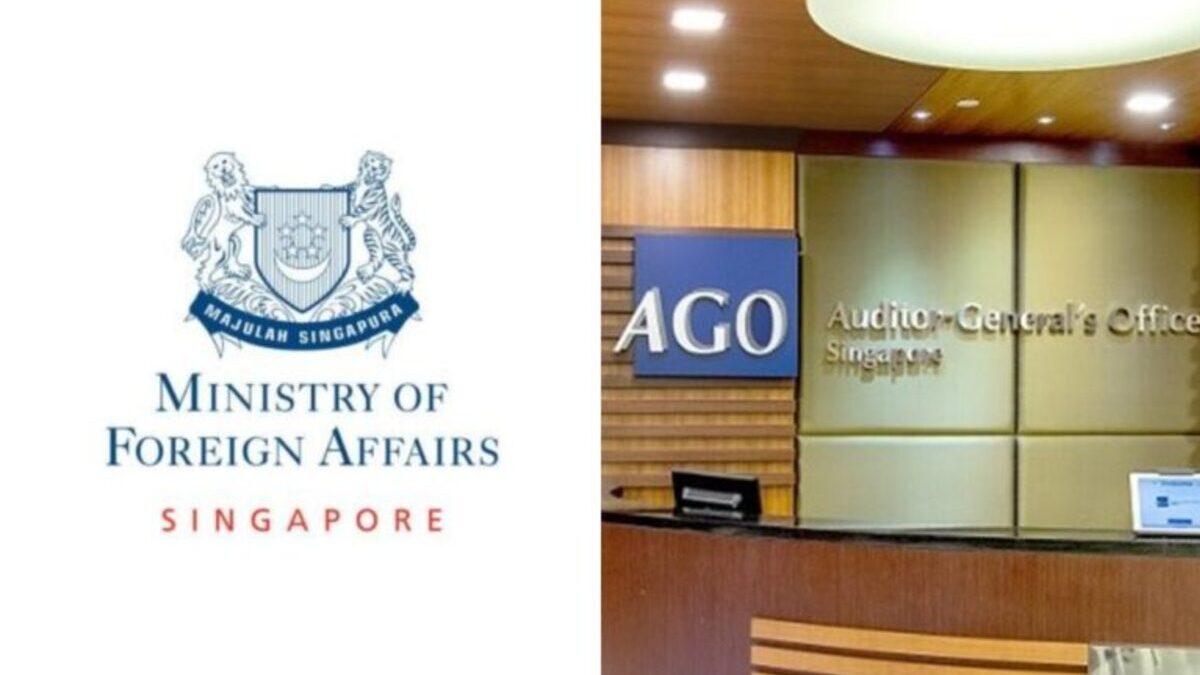MFA announces targeted sanctions on four Israelis over settler violence
Singapore has imposed financial sanctions and entry bans on four Israelis over extremist violence in the West Bank, following an earlier warning by Foreign Minister Vivian Balakrishnan.

- Singapore sanctioned four Israeli individuals for extremist violence in the West Bank.
- The Ministry of Foreign Affairs reiterated that Israeli settlements are illegal under international law.
- The move aligns with Singapore’s broader support for the two-state solution and international law.
Singapore’s Ministry of Foreign Affairs (MFA) announced on 21 November 2025 that it has imposed financial sanctions and entry bans on four Israeli individuals involved in what it described as “egregious acts of extremist violence” against Palestinians in the West Bank.
The individuals named are Meir Mordechai Ettinger, Elisha Yered, Ben-Zion Gopstein, and Baruch Marzel, all of whom have been publicly linked to acts of violence or incitement in the occupied territories.
According to the MFA, these actions are unlawful under international law and undermine the viability of a two-state solution.
“Singapore reiterates its view that Israeli settlements in the West Bank are illegal under international law,” said the MFA in its statement.
“We call on the Israeli government to restrain acts of settler violence and to hold the perpetrators accountable.”
The sanctions include an entry ban into Singapore and restrictions on financial assets, aligning Singapore with similar measures already imposed by countries such as the United States, Canada, the United Kingdom, and the European Union in response to settler violence.
Background of the sanctioned individuals
All four individuals sanctioned by Singapore are well-known figures in Israeli far-right and extremist settler circles, with long-standing reputations for advocating or inciting violence, and in several cases, having been sanctioned or prosecuted by foreign authorities or Israeli courts.
-
Meir Mordechai Ettinger is a known Kahanist activist and the leader of the Hilltop Youth, a radical settler movement involved in illegal outposts, price tag attacks, and religiously motivated violence against Palestinians. Born in 1991, Ettinger is the grandson of Rabbi Meir Kahane. He has called for the dismantling of both the Israeli state and the Palestinian Authority, to be replaced with a religious regime based on Biblical law. His group has also clashed with Israeli security forces.
-
Ben-Zion “Bentzi” Gopstein is the founder of Lehava, an anti-assimilationist organisation that campaigns against Jewish-Arab intermarriage and Arab presence in Israeli society. A close follower of Meir Kahane, Gopstein was sanctioned by the U.S. Department of State and the European Union in 2024 for inciting violence, terrorism, and racism. He has also faced legal action in Israel, including a 2019 indictment for incitement to terrorism.
-
Baruch Marzel, born in 1959, is a former leader of the Jewish National Front and a long-time associate of Meir Kahane. Based in Hebron, Marzel has been described in Israeli media as an “extreme right-wing activist.” He previously served as spokesperson for the now-banned Kach movement and has been linked to violent anti-Arab rhetoric and campaigns.
-
Elisha Yered is an unofficial spokesperson for the Hilltop Youth and has drawn public criticism for statements justifying the killing of Palestinians and advocating for their expulsion from the West Bank. His inflammatory rhetoric has made him a symbol of the hardline settler movement’s younger generation.
These individuals have been designated or investigated by multiple foreign jurisdictions for conduct that includes incitement to violence, racist propaganda, and actions undermining peace efforts.
Sanctions follow earlier policy signal from Foreign Minister
This move fulfils a policy shift first outlined by Foreign Minister Dr Vivian Balakrishnan during a Ministerial Statement in Parliament on 22 September 2025, where he said Singapore would “impose targeted sanctions on the leaders of radical right-wing settler groups or organisations that have been responsible for acts of violence against Palestinians.”
At the time, Dr Balakrishnan stressed that Singapore’s foreign policy would not condone acts that alter facts on the ground in violation of international law.
“We oppose ongoing attempts to create new facts on the ground which undermine the prospects for a two-state solution,” he said in September.
“Consequently, Singapore will impose targeted sanctions... Details will be announced at a later date.”
That announcement was regarded as a significant shift for Singapore, which had previously refrained from unilateral punitive measures in the context of the Israeli-Palestinian conflict.
Parliamentary questions press MFA for more clarity
Following the Dr Balakrishnan 's announcement in September, several Members of Parliament sought clarification on the timing, impact, and future scope of the sanctions.
MP Saktiandi Supaat (Bishan–Toa Payoh) noted that other developed countries had implemented similar sanctions a year earlier, and asked how Singapore determines when such measures are triggered.
He also queried whether Singapore would consider broader sanctions if the humanitarian crisis worsens or if international law violations persist.
Dr Balakrishnan acknowledged that the imposition of sanctions is a serious diplomatic step for Singapore, particularly given its status as a financial centre. However, he cautioned against assuming such actions would change behaviour on the ground.
“Sanctions are not something we enter into lightly,” he said.
“But let us also not assume or presume that sanctions will make a major difference to facts on the ground. They are often more a statement of principle and expression of disapproval.”
MPs question effectiveness and limitations
MP Nadia Ahmad Samdin (Ang Mo Kio) asked whether sanctions could move the needle toward peace, given the presence of extreme positions on both sides of the conflict.
Dr Balakrishnan responded that Singapore’s influence is limited, but that its positions are noted internationally because they are deliberate and principled.
“Will sanctions from a small city-state like Singapore move the needle on its own? No. But will the Israelis notice it? Oh, I am sure they will,” he said.
MP Xie Yao Quan (Jurong Central) raised concerns over Singapore’s lack of further response to Israel’s airstrike in Doha, which the MFA had earlier condemned as a violation of Qatari sovereignty.
He asked whether this attack merited stronger action, including sanctions, in line with Singapore’s historical support for international law and small-state sovereignty.
Dr Balakrishnan said the government would not apply sanctions in every case and preferred to reserve them for the most egregious violations.
“Otherwise, we will end up having to chase every infraction,” he noted.
Sanctions framed as principled, not performative
Throughout the Parliamentary session, Dr Balakrishnan reiterated that Singapore’s foreign policy decisions are grounded in national interest, including internal unity, national security, and the defence of international law.
He stressed that the decision to impose sanctions was not a performative act, but a deliberate expression of Singapore’s disapproval of actions that threaten long-term peace in the region.
“We are not fair-weather friends,” he said. “We are also friends who tell you hard truths.”











